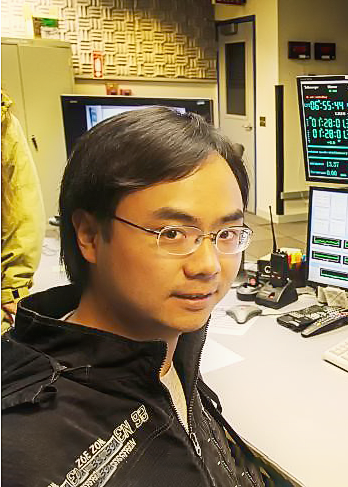USTC Astronomy Colloquium Series: 2024 Spring
Galaxy kinematics, feedback and the role of dark matter halos
彭影杰 教授
北京大学
2024/06/25, 4:00pm , the 19th-floor Observatory Hall

报告人:
Yingjie Peng is an astronomer at the Kavli Institute for Astronomy and Astrophysics at Peking University. He received his PhD from ETH Zurich in 2012, and then became a research associate at Cavendish Laboratory and a postdoctoral fellow at the Kavli Institute for Cosmology, University of Cambridge. In 2015, he joined KIAA as a faculty member. He was awarded the ETH Medal from ETH Zurich, RAS Research Fellowship by the Royal Astronomical Society UK, and the MERAC Prize in Observational Astrophysics from the European Astronomical Society. His research interests focus on observational cosmology, galaxy formation and evolution.摘要:
I will first show that the ubiquitous presence of bimodality in intrinsic stellar spin across galaxies, indicating that star formation quenching is proceeding separately within two distinct kinematic populations dominated by cold discs and hot spheroids. These two populations also have contrasting recent star formation histories and metal enrichment histories, which reveal their diverged pathways to formation and quenching. Through HI observations, we show that massive gas outflows among the slow-rotating population are facilitated by high ejective feedback efficiency, which is a result of extensive coupling between disturbed volume-filling cold gas and biconical feedback from central black holes. By contrast, in fast-rotating disc galaxies the feedback energy mostly goes to the hot CGM rather than directly impacts the dense and planar cold gas, thus making the feedback mainly preventive against further gas inflow. Meanwhile, given the lack of significant observational evidence for instantaneous negative AGN feedback on the global ISM and global SFR in galaxy populations, I will discuss the connections between stellar mass growth history, quenching history and halo assembly history for central galaxies. 邮编:230026 ,
邮编:230026 ,  联系电话: 0551-63601861
联系电话: 0551-63601861 Email:
Email: